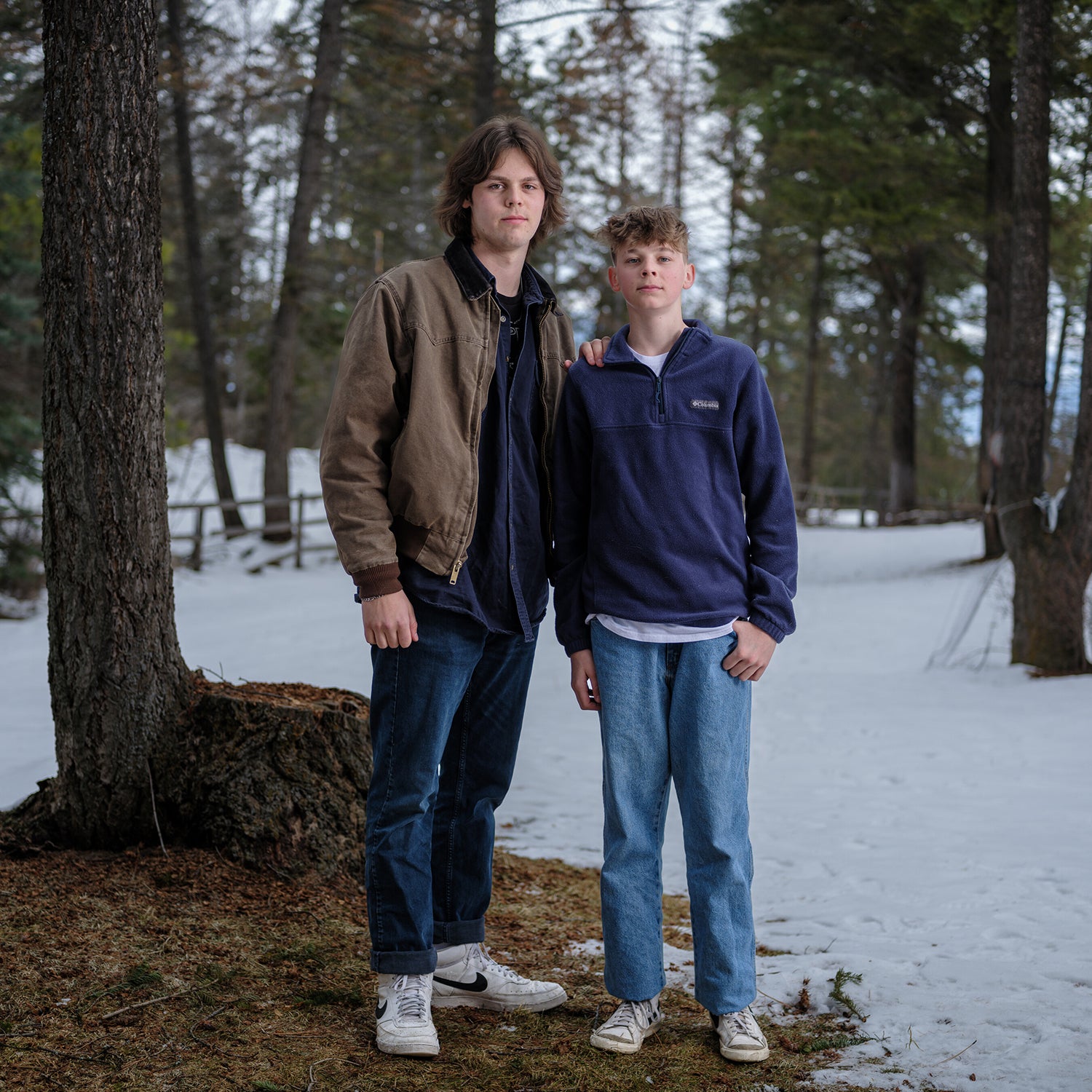Montana is home to huge swaths of public land, clear rivers, and stunning mountain ranges. It also produces more fossil-fuel-related carbon emissions annually than all but five other states—and is responsible for as much carbon dioxide as many countries, including Argentina, the Netherlands, and Pakistan.
Montanan Kian Tanner, 18, grew up next to Flathead Lake, in the state’s northwest corner, fly-fishing, hiking in nearby Glacier National Park, and spending most of his time outside. During his adolescence, he saw his home increasingly threatened by wildfires and smoke-choked air. Another local teen, Taleah Hernandez, 19, witnessed this, too. “I’ve had a few wildfires pretty close to my home,” Hernandez says. “A few years ago, one shut down the highway, so we had to check in with a police officer any time we wanted to go in toward our house.” Growing up, Hernandez spent her winters ice skating on the lake, and she has watched the ice grow thinner year after year.
In 2020, Tanner, Hernandez, and 14 other minors from Montana filed suit against their home state, claiming that its energy policies violated their right to a “clean and healthful environment,” as laid out in the state’s constitution. The plaintiffs, now ages 5 to 22, did so with the help of the nonprofit law firm Our Children’s Trust, which helps young people fight for sustainable policy in court. On August 14, 2023, they won their case, setting the precedent that Montana must take climate change into account when enacting laws that affect the environment.
“This is one of the most powerful decisions I’ve ever read on the environment in Montana,” says Jim Nelson, a retired Montana Supreme Court justice. Held v. Montana, named for 22-year-old plaintiff Rikki Held, says that the Montana government is responsible for how state policy affects the environment. This was a particularly notable outcome in a state that relies so heavily on the oil and gas industry, which accounted for 21 percent of the state’s gross domestic product in 2021.
The trial was set in Helena in June (so the plaintiffs didn’t have to miss school while testifying in court). For many of them, it was their first time in a courtroom. “I was really, really nervous the night before,” Tanner says. “We didn’t know when I was going to testify. Then, in the morning, they were like, ‘OK, you’re going first.’ But I got into a rhythm. It was easy because I was telling my life story. I went from nervous and scared to being truly empowered.”
It was hard to hear their peers talk about the ways their towns have been affected by the climate crisis, the kids said. But listening to experts describe how their home state will be devastated by climate change if Montana continues on its current policy path was even harder.
“I was in an environmental-science class at the time,” says Tanner. “So I understood the base-level science, but the depth that the experts went into was fascinating and horrifying at the same time. They were verifying that our future is up in the air if we don’t act right now.”
Montana appealed the decision in early October and will take the case to the state’s supreme court. But Held v. Montana has already spurred Our Children’s Trust to bring similar suits in Utah, Hawaii, and Virginia—and helped the suit in Hawaii gain enough momentum to go to trial next June.
When asked if the case inspired them to continue fighting for climate action in other ways, all three students responded with a resounding yes.
“Especially after meeting and getting to know the other youth plaintiffs, it’s hard to imagine sitting on my hands the rest of my life,” says Claire Vlases, another plaintiff. “It invigorated that for me.”


